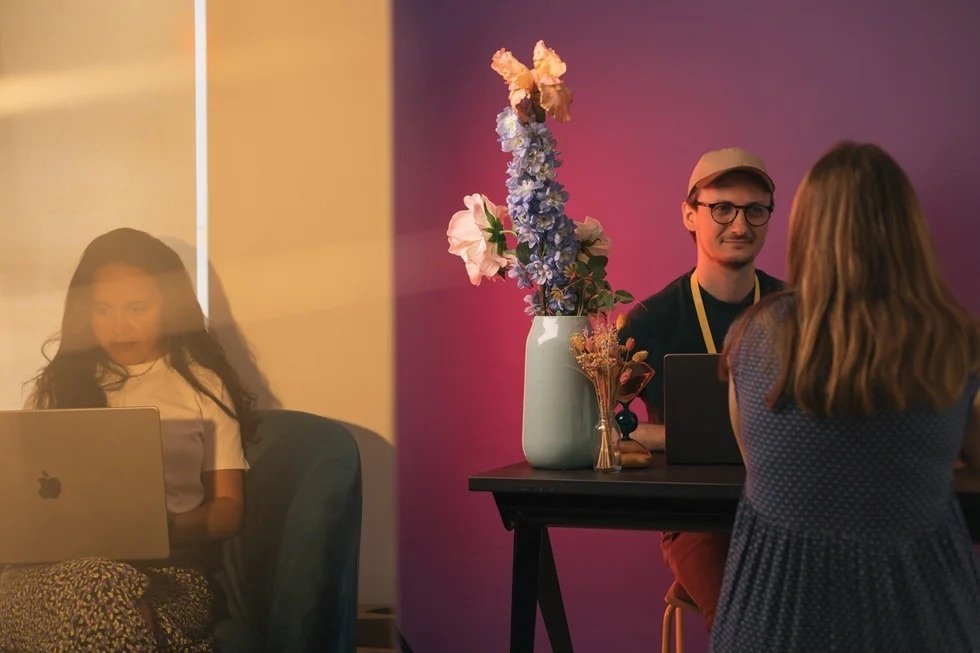Clash of cultures: Unpacking the RTO conundrum
Jul 23, 2024
6 mins


Freelance Journalist
The pandemic changed the way many people lived for quite some time. Remote working became the norm and many of us got used to not having to travel to an office or other workplace. Since life returned to normal, more and more companies are requiring workers to return to the office. Some employers argue that bringing staff back together is better for employees and companies alike—but not everyone agrees.
From the bedroom to the breakroom
When Pavel Buev was told that he had to return to the office after having worked from home during the pandemic, the web editor wasn’t happy. Once again, he faced a long commute and the pressure to ensure he was dressed smartly every day. “Returning to work in the office had a negative impact on many employees, including me,” he says. “The journey to the office and back takes almost two hours of my time [each day]. You are also required to comply with the dress code and always be neat. All this had a negative impact on my mental state.”
It’s hardly surprising that Buev was reluctant to show up at the offices of his employer, Ocean Power Agency. He’s just one of many workers who have found remote working to be a positive experience, with 93% of workers reporting that remote working was good for their mental health.
That has also been the experience of Clemence Martin,* who has worked for a FTSE 100 company for more than 20 years. Even though she struggled to get used to working from home in 2020, she now prefers it. These days, Martin has to attend the office just two days a week, though she would prefer if it were one, as the commute eats into her day. “It takes me an hour to get into the office and an hour to go back home so I lose a lot of time,” she says. “I have to wake up earlier.”
When the company first mandated that staff return to the workplace, Martin found it stressful, knowing that Covid-19 hadn’t gone away completely. “The most difficult thing was taking transport,” she says, “because I was afraid and really stressed about the crowds. . . I thought [the virus] was everywhere… I had a feeling I would catch it and bring it home to my kids and my husband.” Her fears were compounded when some colleagues fell ill. “In the company, we had a few cases where we were in contact with people in meetings and then they tested positive, so [we had] to isolate,” she says.
She has mixed feelings about returning to the office. She enjoys meeting her colleagues, but there’s no guarantee they will be there when she is. “Sometimes I go to the office and there is no one else there, so I’m alone,” she says.
Martin says it makes sense to stay home given the positive effect on mental health. “It’s much better . . . The time you [would] lose taking public transport, you can use to do something else for your private life and then you have more free time for you. For me it’s definitely better for work-life balance,” she says. “We have proof that we can work as efficiently [at home].”
A blow to morale
Although many employees feel that they are more productive at home, there is no evidence that this is true for the majority, according to a report from the Federal Reserve Bank of San Francisco, which analyzed results in a range of industries. However, some employees who believe they can perform just as effectively from home feel it is unfair when they are made to return to a physical workspace, according to Martynas Žvirblis, a manager at VPS Forex Trader.
“This perceived unfairness erodes morale and fuels resentment towards [their] employer and their supervisors,” he says. “Due to this low morale, ongoing stress and resentment, the stage is set for eventual burnout.” This can manifest as emotional exhaustion and disengagement, according to interviews with employees and internal surveys, further reducing productivity.
For those whose jobs can be done online, a full-time return to the office can feel like a significant loss of control, add to their stress and disrupt the work-life balance that an employee may have previously achieved. “As a tech company, we understand that disregarding these concerns in favor of a mandatory return to the office risks us losing valuable employees and damaging our long-term employer brand,” he adds.
Finding the right balance
For many businesses, the answer has been to adopt hybrid working, which involves bringing staff back to the workplace for a few days each week, rather than every day. One study found that hybrid working even improves staff retention without damaging performance.
Dan O’Reilly,* who works at a multinational tech company where the standard is to work three days a week in the office and two days remotely, is happy with the arrangement. “I think going into the office is good for productivity,” he says. “It helps with collaboration and networking between teams and helps build relationships. Equally, staying home has benefits where you don’t waste energy commuting, especially in big cities like London. You can be more productive and avoid distractions and watercooler chat.”
He’s aware, though, that not everyone thrives in a noisy environment. “The office can get busy. So, for some people, it can make it really difficult for them to concentrate,” he says. “If you take into account people who may have disabilities as well, it can make things more challenging.”
He likes to go into the office because he enjoys the change of scenery and it helps put him in a more productive mindset. However, being able to put clothes in the wash during his breaks at work, rather than waiting for the weekend, is part of the attraction of working from home. “For mental health, it’s good to be around colleagues as it builds camaraderie, but it can also create a sense of falling behind on work because on the days I’m in the office I tend to catch up with people. So, I don’t actually get as much work done as I could at home sometimes.”
Martin agrees. She says there are still times when she works less in the office than she would at home, because she is catching up with colleagues. At home, sometimes she works non-stop, without taking any breaks.
An employer’s perpective
Despite the reported backlash against returning to the office, for many companies that is still the goal. A survey published in February by Resume Builder found that 76% of employers believe returning to the office has a positive impact on productivity, 63% believe that it improves culture, and 29% say that it reduces burnout. Surveying 833 business leaders at companies that were fully remote at the height of the pandemic, Resume Builder also found that 4 out of 10 think that employees want to be in the office at least four days a week.
Joel Wolfe, president of HiredSupport, says going back to the office can improve communication, productivity and efficiency—though some employees who think “productivity is achieved best when attending a meeting while feeding my cat” will not be happy to conform. “[Some staff] will try to justify why working from home works best for them, and may even slack at work just to prove their point,” he says. “The return to physical workspaces can have far-reaching consequences but it really depends on how both parties handle the situation.”
Dr. Helmut Schuster, former group HR director of BP, doesn’t believe working from home can help a company’s productivity or its staff. “It might work for a small group of mid-level managers [who live] in big houses with their own home office, but when you think about all the young people who don’t have that kind of accommodation, they work in small places in their apartments, it’s very hard,” he says. “Many of them are delighted to go into the office.”
Schuster says a hybrid model is the way forward where people can benefit from being in the office, receiving face-to-face support, but also have the flexibility to work around their own schedules. “At home, people may have kids, they have family . . . but this doesn’t create the professional inspiration you would like to have. But, in the office context you have like-minded people.”
In addition, he points out that there is a bigger chance of getting depression and being “bored out” when exclusively working from home. Fully remote and hybrid work are associated with an increased likelihood of anxiety and depression symptoms – 40% and 38% respectively – compared with in-person work (35%), according to analysis by the Integrated Benefits Institute, a nonprofit research organization.
“People working from home, the endless hours, in isolation, was not very good for their mental wellbeing,” he says. “In a corporate context, you have affinity groups, social engagements, dinners, you have contact. In many ways, people getting back into the office will be very good for society because it helps mental wellbeing.”
Despite his initial reluctance to return to the office, Buev says it has worked out well at his company. “Productivity increased and everyone noticed it,” he says. “Our agency is currently discussing the introduction of a four-day work week—provided that efficiency remains at the same level. This lifted the spirits of all employees.”
*Some names have been changed
Photo: Welcome to the Jungle
Follow Welcome to the Jungle on Facebook, LinkedIn, and Instagram and subscribe to our newsletter to get our latest articles every week!

More inspiration: Work-life balance

Back to school: How to balance continuing education with work
Balancing work and school is manageable. Choose the right course, inform your boss and friends, build good habits and take breaks to avoid burnout.
Jul 31, 2024

The 4-day workweek: 50 things we couldn't do without it
What would you do with one extra off day per week?
Feb 19, 2024

Does working eight hours a day really make sense?
The eight-hour workday may seem like a staple of modern work, but is it really necessary?
Oct 11, 2023

How social media professionals cope in an always-on world
Social media use can lead to feelings of anxiety, depression, and loneliness. We asked social media managers how they deal with the internet
Oct 02, 2023

Struggling to disconnect on vacation? You are not alone
As excessive screen time increasingly defines our working lives, more than half of Americans can't fully unplug during their time off
Jan 11, 2023
The newsletter that does the job
Want to keep up with the latest articles? Twice a week you can receive stories, jobs, and tips in your inbox.

Looking for your next job?
Over 200,000 people have found a job with Welcome to the Jungle.
Explore jobs